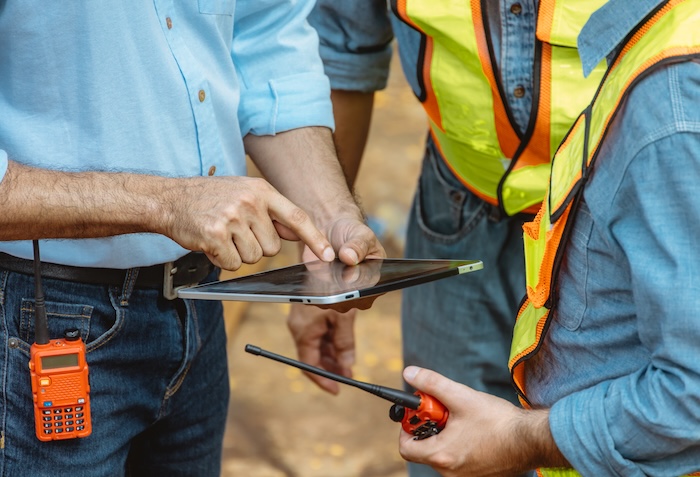Lower SIF exposure without more paperwork
Embed a simple daily rhythm and psychological safety so hazards surface early. Reduce serious injuries and improve retention.
Results Safety Leaders and HR can measure
Earlier Signals
Precursors and at-risk conditions show up before incidents (line-of-fire, energy isolation, interface gaps, etc.).
Safer Execution
Controls are tied to real work, not extra forms.
Stronger Retention
Recognition and support improve morale and reduce exits.

How it works on your site
- Executive intro: Identify where exposure and underreporting exist. Pick one area or crew to start.
- Co-design the pilot: Define scope, crews, success criteria, leading indicators, and governance with EHS and Operations together.
- Activate and scale: Run the daily rhythm. Leaders see live signals. Expand to more crews and lock it into the operating cadence.
Field-ready pieces that make safety actionable in the flow of work.
Crew Rhythm Plan
Supervisor cadence that includes safety intent at start, mid-shift variation review, and end-of-day capture.
SIF Shield
Task-based prompts and controls aligned with the hierarchy of controls.
Speak Up Check-In
A simple signal system that makes it safe to raise concerns and needs.
Recognition Loop
Peer and leader recognition that reinforces safe pace and good catches.
BootBook
Pocket tool that makes planning, observation, and follow-through effortless.
eTracker and Analytics
Structured capture with SIF-potential indicators, heat maps, and weekly leadership readouts.
Safety Gateway Alignment
Owner and GC requirements mapped to your site so exports and reporting stays clean.
Starter Kit Logistics
On-site deployment support, crew materials, and champion coaching.
What your leaders run each day
Start of shift
- Name top exposures
- Controls
- Roles
- First handoffs
Mid-shift
- Review variation
- Barriers removed
- Adjust plan
End of day
- Capture learnings
- Near misses
- Rework drivers
- Tomorrow’s ready-to-run list
Use cases for Safety Leaders and HR
Turnarounds and outages.New builds and commissioning.
High-energy work.
New-to-industry or rotating crews.
Sites with repeat first-aid and near-hit patterns.

Start small. Scale fast.
- Pilot Scope: One area or crew. Co-designed with EHS and Operations. Weekly leadership readouts.
- Area Pilot: Three to five crews. SIF dashboard live. Recognition system active.
- Site Program: Multi-area adoption with internal champions trained.
Alignment without extra paperwork
Serious Injury and Fatality (SIF) controls are woven into the flow of work.
Signals surface earlier.
Requirements from owners and GCs remain intact without adding lagging forms.
Common Questions
Does this add more forms?
No. It replaces ad-hoc huddles with a short cadence and simple prompts.
Who leads it?
Supervisors and champions on site. We coach them.
How fast do we see signal?
Early indicators appear once the rhythm is live.
How does this work with HR?
Recognition and wellbeing prompts are built into the cadence to support retention and reduce exits.
